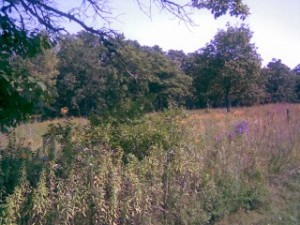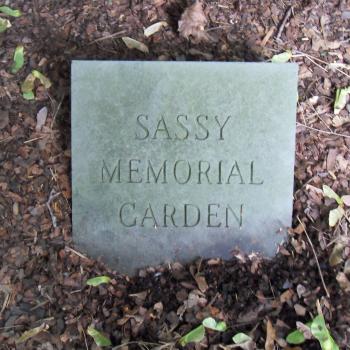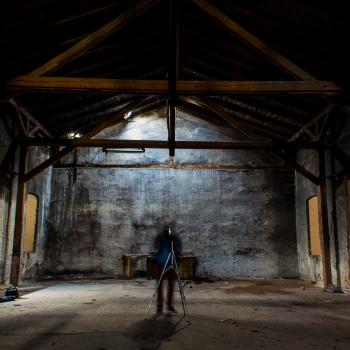 My brother and I walked down an old road the other day. Our parents were just ahead of us, traveling along a path that once led toward a small tenant house and an equipment barn that no longer stand.
My brother and I walked down an old road the other day. Our parents were just ahead of us, traveling along a path that once led toward a small tenant house and an equipment barn that no longer stand.
It was a late summer afternoon, hot and dazzling despite the hour—the kind of afternoon in the South that makes you wonder if the light will ever surrender the sky—wonder if the night and coolness and sleep will in the end be too weak to venture their claims.
We see each other about twice a year, my brother and I. But this was an exceptional visit, not involving a holiday. He’d come on the spur of the moment, his only reason being that we hadn’t seen each other in a while; that, and the fact that we would reunite at our parent’s farm, while I was on a visit there myself.
My brother is four years older than I am. For a long time, that seemed like an enormous gap. While it feels somewhat less so now, it still holds its power. I suppose there is always a mystique associated with our first impressions.
My imagination still considers Memphis the largest city in the world, because it was my first conception of a metropolis, and the first place I saw a building over three stories tall.
So it is with my brother. In my fancy, he is perpetually four years older and wiser and experienced, regardless of how many places I go or things I do.
It had been ages since we walked together across the old farm, a place where in our youth we worked every afternoon (and in the summer, every day), alongside men and other boys who were hired to help us with the various livestock—horses, cattle, hogs; and crop stands—hay, corn, soybeans.
All of that is gone now, for the most part, and much of the land sold. The road we walked upon used to run from the highway and on through long pastures and broad fields, then across a creek, up a large hill and down the other side again. It took horses to make the run of it.
Now it stops at the curve of a fenced slope. Strangers own what lies on the other side. The pastures are enclosed in parcels these days—in neat, aloof squares.
That is the way of things: There is no grieving it. Circumstances change and only fools expect things to remain the same.
To my mind’s eye, everything I see across that fence is really something else: What is now a grove in front of someone’s home, I know to be shade trees for bird dog pens. Somebody’s driveway stands in the middle of a lost cow pond. Children’s play structures sit where a loading chute rose from the ground. And what has become a nature trail for a subdivision was once, in part, the site of a garden.
Peppers, hot as nine yards of hell, were grown there (“Don’t touch your eyes,” we were warned), and pole beans straight and green as soldiers. There were crowder peas speckled like puppies, and collards and turnips and mustard greens (wait until frost to pick them), and even watermelons (no good unless there’s a big yellow spot on the bottom).
We all worked in the garden when the evening turned cool—my family, of course, but also Cecil, Ben, and Evelyn, Cubie, and Bobby Lee, and all the people that came and went on that farm, working for a time and leaving after a time—taken by events, taken by sickness, taken by age. I would know each one of them, even after a hundred years.
That afternoon, walking alongside my brother, I wondered if he thought about those things too. While I assumed we shared larger memories, it was the small ones that I feared.
It must be common to grow angry when others don’t remember what we do. It seems a betrayal somehow, that what we have stored for so long has not been equally treasured.
So that afternoon, I wondered if my brother remembered a particular tree that stood at the corner of the garden. It was tall and young (a sumac?), no fatter than the circle you make with your hands, thumb-to-thumb and fingers to fingers.
And if you stood on a fence post, you could lean against the trunk and see my brother’s initials just above your head. He had carved them—RFH—not in the usual way, by digging into the bark with a knife, but by chipping away at the skin with some soft tool until the letters stood inside a relief of the living crust. From time to time, I would climb that post to find them—delighted, as though they were a secret I had been let in on.
On occasion, I’ve driven down the road to the subdivision that was once part of our farm and tried to find that tree. None seems the obvious choice, and the obscurity can make me doubt if it still stands. Regardless, I tell myself that it’s alive.
So as we walked that afternoon, I asked him, hopefully, if he recalled it.
He smiled, nodded, and I had my answer.
Later, we mused that the letters must have grown high by now, taller than you could see by standing on a post. Even we, who remembered, could look for them only in the hidden place to which they have stolen.
I know now that I was looking for something of myself there, in the garden of his memory—looking to see whether, like the initials on that tree, my past lay in relief, carved within his own, wearing against it—high, shaded and unseen, but living there nonetheless.
I was glad to find it again.
Once in a great while, there is no such thing as time.











